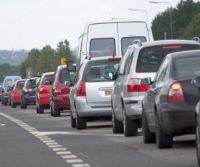

The Government have announced they have abandoned plans to introduce a national diesel scrappage scheme.
The move was met with much criticism from environmental campaigners such as Greenpeace, who condemned the decision, stating it showed that "Government action is shifting from first gear to reverse".
The scrappage scheme was aimed at drivers of diesel vehicles, to encourage them to trade in or modify their vehicles to a more efficient model.
The consultation on the scheme ended in March, with the Department for Environment, Food and Rural Affairs (Defra) releasing a response to the consultation that the scheme "would be difficult to deliver, potentially open to abuse and could disrupt the existing car market. In response to these concerns, we are not proposing to take forward a national scrappage scheme at this time."
The Government did say that councils could still apply to run their own local scrappage schemes, using cash from the Clean Air Fund. That fund contains £220 million.
Amongst the criticism from green campaigners was also criticism from the AA, who commented that "for years, the Government has incentivised and encouraged people to purchase diesel cars; it is only fair it now helps people switch to cleaner alternatives."
Cedrec's take
Greenpeace are arguably right to feel angry at the response to the scheme. The Government have various cases to ClientEarth and green activists in relation to their policies to tackle air pollution and this scheme would have undoubtedly seen a huge decrease in diesel cars on the road. It was certainly never going to solve the issue, but it was a start.
The AA's comment on the encouragement of purchasing diesel is a very valid one. As with many things in regards to technology and innovation, we learn as we go, but the fact remains that many people bought diesels - which were subject to a lower vehicle excise duty - believing them to be cleaner and more efficient. As the AA have articulately said, it now falls to the Government to help clean up that misunderstanding.
As it won't be with a national scrappage scheme, it remains to be seen how the Government propose to further tackle air pollution from vehicles. There is still the overall aim of a ban on new petrol and diesel car sales by 2040. In fact, the National Grid, which runs the UK's national electricity network, have recently commented that they would support the Government in bringing this date forward as they feel confident they can cope with the demands of an earlier surge in electric car numbers.
Graeme Cooper, the firm's director of electric vehicles, told the Department for Business, Energy and Industrial Strategy (BEIS) select committee: "From Grid’s point of view, 2030 or 2040 is far enough out to act". Asked if the company could handle the challenge of managing energy supplies if sales of fossil fuel-powered cars were banned in 2030, he said: "Absolutely, no problem at all."